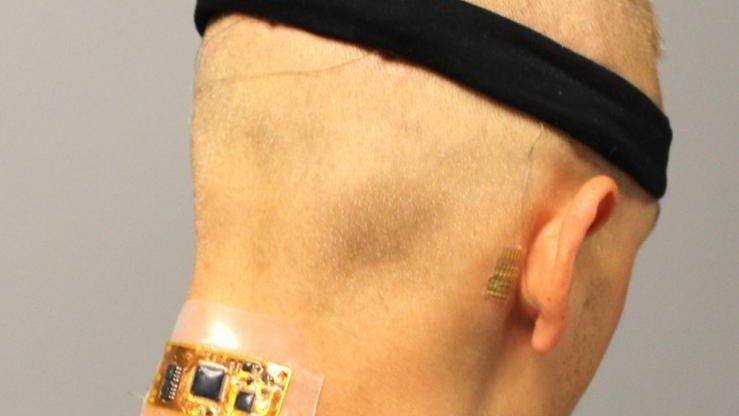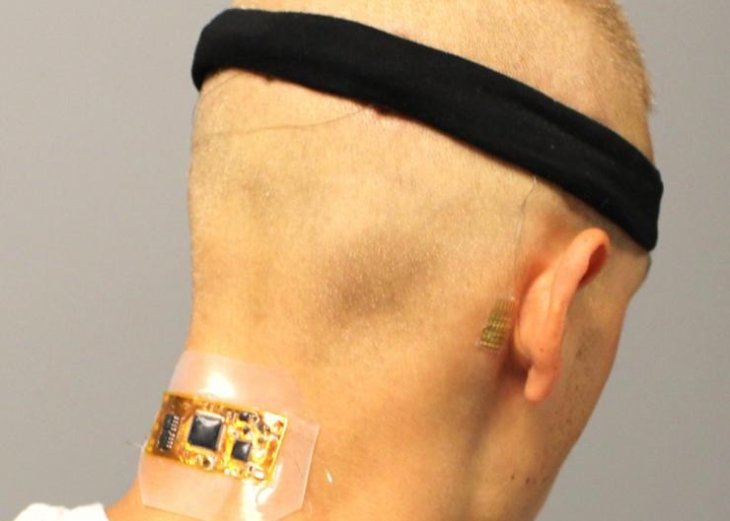People With Disability Can Control Wheelchairs With This New Brain-Machine Interface
Aadhya Khatri - Oct 14, 2019

The new BMI can cover devices like a computer, an electric wheelchair, and a robotic vehicle without wires or hair-electrode cap
- Intel Contributes To The World First Wheelchair Controlled With Facial Expressions
- Stephen Hawking’s Wheelchair Was Sold For Rs 28,374,921.81 At Auction
Georgia Tech has just made a new BMI (stand for brain-machine interface) by combining a new deep learning algorithm, flexible electronics, and a new class of nano-membrane electrode. This invention is expected to help people with disability control devices wirelessly. The new BMI can cover devices like a computer, an electric wheelchair, and a robotic vehicle without the users bothering themselves with wires or hair-electrode cap.
This BMI proves to be an enhancement in comparison with the traditional EEG, which can measure the signals from potentials evoked visually in the brain. The new BMI has been tested on six human subjects in measuring EEG but not on a person with disability.

According to the researchers, BMI plays an important part in helping people with severe motor disabilities like chronic stroke and ALS to take control of their prosthetic systems. For now, to measure virtually evoked potentials, the patient must wear a hair cap studded with electrodes, wire, and plenty of adhesives.
This new system of BMI involves wireless and flexible electronics and sensors that can be applied easily to the skin. The telemetry unit will receive data via Bluetooth. A flexible circuit will process the EEG data and then send them to a computer to be interpreted. The wireless range of the system is 15 meters.
The system calls for three elastomeric scalp electrodes kelp on the head by a fabric band. There are also sensors on the patient’s neck and electrode under their ears. All of the electrodes need no gel and adhesive as they are soft and dry.
The next step in the researchers’ study is to test the new BMI system on disabled individuals. Woon-Hong Yeo, Georgia Tech's assistant professor said that this creation could serve as the foundation for smart home systems, assistive devices, and neuro-gaming interfaces.
Featured Stories

Features - Jan 29, 2026
Permanently Deleting Your Instagram Account: A Complete Step-by-Step Tutorial

Features - Jul 01, 2025
What Are The Fastest Passenger Vehicles Ever Created?

Features - Jun 25, 2025
Japan Hydrogen Breakthrough: Scientists Crack the Clean Energy Code with...

ICT News - Jun 25, 2025
AI Intimidation Tactics: CEOs Turn Flawed Technology Into Employee Fear Machine

Review - Jun 25, 2025
Windows 11 Problems: Is Microsoft's "Best" OS Actually Getting Worse?

Features - Jun 22, 2025
Telegram Founder Pavel Durov Plans to Split $14 Billion Fortune Among 106 Children

ICT News - Jun 22, 2025
Neuralink Telepathy Chip Enables Quadriplegic Rob Greiner to Control Games with...

Features - Jun 21, 2025
This Over $100 Bottle Has Nothing But Fresh Air Inside

Features - Jun 18, 2025
Best Mobile VPN Apps for Gaming 2025: Complete Guide

Features - Jun 18, 2025
A Math Formula Tells Us How Long Everything Will Live
Read more

Mobile- Feb 17, 2026
Anticipating the Samsung Galaxy S26 and S26+: Key Rumors and Specs
The Samsung Galaxy S26 series is on the horizon, sparking excitement among tech enthusiasts.

ICT News- Feb 18, 2026
Google's Project Toscana: Elevating Pixel Face Unlock to Rival Apple's Face ID
As the smartphone landscape evolves, Google's push toward superior face unlock technology underscores its ambition to close the gap with Apple in user security and convenience.

ICT News- Feb 19, 2026
Escalating Costs for NVIDIA RTX 50 Series GPUs: RTX 5090 Tops $5,000, RTX 5060 Ti Closes in on RTX 5070 Pricing
As the RTX 50 series continues to push boundaries in gaming and AI, these price trends raise questions about accessibility for average gamers.

Mobile- Feb 16, 2026
Xiaomi Launches Affordable Tracker to Compete with Apple's AirTag
For users tired of ecosystem lock-in or high prices, the Xiaomi Tag represents a compelling, no-frills option that delivers core functionality at a fraction of the cost.
Comments
Sort by Newest | Popular